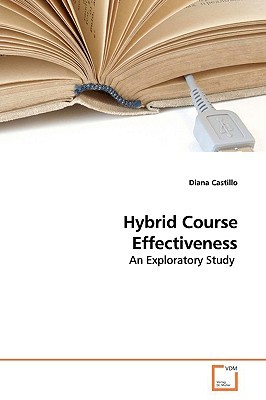
- We will send in 10–14 business days.
- Author: Diana Castillo
- Publisher: VDM Verlag
- ISBN-10: 3639162420
- ISBN-13: 9783639162424
- Format: 15.2 x 22.9 x 1.1 cm, minkšti viršeliai
- Language: English
- SAVE -10% with code: EXTRA
Reviews
Description
Over 54 million adults in the nation's labor force lack a college degree. Adult learners need convenient, flexible, and innovative educational pathways to help them succeed in college. Community colleges, major providers of higher education, are in a good position to meet the untapped potential of adult learners. This book examines the attitudes of community college faculty regarding the effectiveness of hybrid courses. Hybrid courses are defined as courses that replace at least half of the face-to-face class sessions with virtual online forums and web-based instructional activities through the use of a course management system. A review of available literature revealed a lack of research regarding faculty attitudes and experiences involving hybrid courses. The impact of the hybrid instructional method is timely and extends the related research. Hybrid courses appear to hold pedagogical benefits, in particular, for engendering active, experiential, reflective, and collaborative learning that are especially attractive for adult learners because students can pace and direct their own learning.
EXTRA 10 % discount with code: EXTRA
The promotion ends in 22d.18:17:57
The discount code is valid when purchasing from 10 €. Discounts do not stack.
- Author: Diana Castillo
- Publisher: VDM Verlag
- ISBN-10: 3639162420
- ISBN-13: 9783639162424
- Format: 15.2 x 22.9 x 1.1 cm, minkšti viršeliai
- Language: English English
Over 54 million adults in the nation's labor force lack a college degree. Adult learners need convenient, flexible, and innovative educational pathways to help them succeed in college. Community colleges, major providers of higher education, are in a good position to meet the untapped potential of adult learners. This book examines the attitudes of community college faculty regarding the effectiveness of hybrid courses. Hybrid courses are defined as courses that replace at least half of the face-to-face class sessions with virtual online forums and web-based instructional activities through the use of a course management system. A review of available literature revealed a lack of research regarding faculty attitudes and experiences involving hybrid courses. The impact of the hybrid instructional method is timely and extends the related research. Hybrid courses appear to hold pedagogical benefits, in particular, for engendering active, experiential, reflective, and collaborative learning that are especially attractive for adult learners because students can pace and direct their own learning.


Reviews